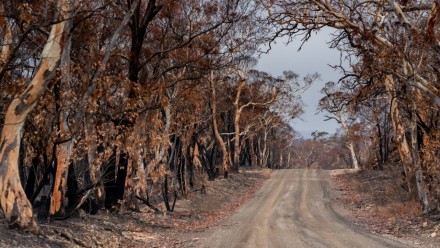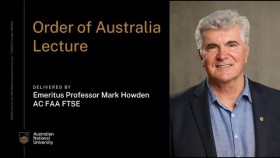Summary - Workshops on the Royal Commission into National Natural Disaster Arrangements
The Black Summer bushfires were immensely destructive, burning through an area equivalent to the size of Ireland, and fuelled by months of record-breaking temperatures and drought. The bushfire season was unprecedented due to its length, intensity, and areas impacted.
Following this fire season, The Royal Commission into National Natural Disaster Arrangements (RC NNDA) was formed to examine how prepared Australia is to respond to bushfires and other natural disasters.
In its report, the Commission stated that “We need to do much more than put out fires”, and called for more focus on avoiding or mitigating disasters as much as possible.
From 20 May to 18 June 2021, the ANU Institute for Climate, Energy & Disaster Solutions facilitated a series of targeted online workshops to discuss how government, industry and society can go about the challenge of implementing the Bushfire Royal Commission’s wide-ranging recommendations.
The workshops were well-attended by stakeholders from a variety of fields, resulting in rich and engaging discussions.
You can catch up on the respective recordings and written summary for the workshops below, as well as a consequential podcast episode.
Workshop #1 - Managing bushfire risk in the landscape
Abstract:
Protecting people and assets – the environment, infrastructure and property – is at the heart of bushfire risk management strategies.Managing disaster risk is, as the RC NNDA noted, “inherently complex”.
In this forum, Prof Phil Gibbons (Fenner School of Environment and Society) and Dr Richard Thornton (Chief Executive Officer, Bushfire and Natural Hazards CRC) address recent research and contemporary thinking about bushfire risk management in the landscape.
View the recording here
Workshop #2 - Emerging technologies and bushfires: realising the promise
Abstract:
The RC NNDA identified investment in emerging technologies as one of the areas of promise and priority that Australia was well-placed to develop further.
In this panel, Assoc Prof Marta Yebra and Prof Rob Mahony outline their work on developing technologies for early fire detection and response; and Dr Tony Bartlett reflects on the history of technology development in bushfire suppression, and what it suggests for future priorities.
View the recording here
Workshop #3 - Civil/military cooperation in the new legal and policy environment
Abstract:
Following the 2019/2020 bushfires, the Prime Minister announced a new role for the Commonwealth and in particular the ADF. The Commonwealth would ‘lean in’ and take more initiative when it comes to the use of the ADF in disaster response and recovery. Even before the RC NNDA had handed down its report the Commonwealth flagged amendments to the Defence Act 1903 (Cth) that became law with the passage of the Defence Legislation Amendment (Enhancement of Defence Force Response to Emergencies) Act 2020. What does this new environment look like, what will it mean for incident controllers appointed by state based emergency services and how will the ADF and the states’ emergency services work together?
The RC NNDA recommended that ‘State and territory governments should take steps to ensure that there is better interaction, planning and ongoing understanding of Australian Defence Force capabilities and processes by state and territory fire and emergency service agencies and local governments’.
This workshop contributed to those ‘steps’ by starting a discussion between those that will have to implement and work with the new legal and policy environment to develop a shared understanding of how emergency response will work in the next catastrophic disaster.
Read the written summary here
Workshop #4 - Health and Disasters: A Hypothetical Discussion
Abstract:
Hashtag for 2021: strategic imagination (term within the Royal Commission) reminds us of the need to imagine what we haven’t seen before to best prepare for our future. It’s a new climate not just a new temperature.
This health-oriented workshop aims to:
- Provoke strategic ideas and response from health practitioners and health systems to adequately prepare and foster adaptation response for the changing climate; and
- Identify tools that might be useful for strategic health planning within the system.
This session featured a panel of invited experienced health practitioners and researchers as speakers to discuss a future scenario. This hypothetical scenario prompted questions and discussion about individual and community health as well as health system response centred around risk of natural disasters in our changing climate.
View the recording here
Policy Forum podcast - Learning from the Black Summer
It’s an experience no Australian wants to relive, but bushfire seasons like that of 2019/2020 are likely to increase in frequency due to climate change. On this Policy Forum Pod, defence expert Brendan Sargeant, emergency law scholar Michael Eburn, forestry academic Peter Kanowski, and health professional Arnagretta Hunter discuss the bushfire royal commission and how policymakers should be preparing to manage more severe bushfires.
The 2019/2020 bushfire season was a traumatic experience for so many Australians, but are the country’s policymakers learning the right lessons from the Black Summer? Are the recommendations of the Royal Commission into National Natural Disaster Arrangements being taken seriously? And, with Australia facing the prospect of increasingly severe weather patterns due to climate change, how can governments, emergency services, and citizens work together to protect their communities? On this episode of Policy Forum Pod, Professor Brendan Sargeant, Honorary Associate Professor Michael Eburn, and Professor Peter Kanowski join Dr Arnagretta Hunter to discuss what policymakers and citizens should learn from Australia’s Black Summer.
Listen to the episode on the Policy Forum Acast website, featuring Dr Arnagretta Hunter, Professor Brendan Sargeant, Honorary Associate Professor Michael Eburn, and Professor Peter Kanowski











